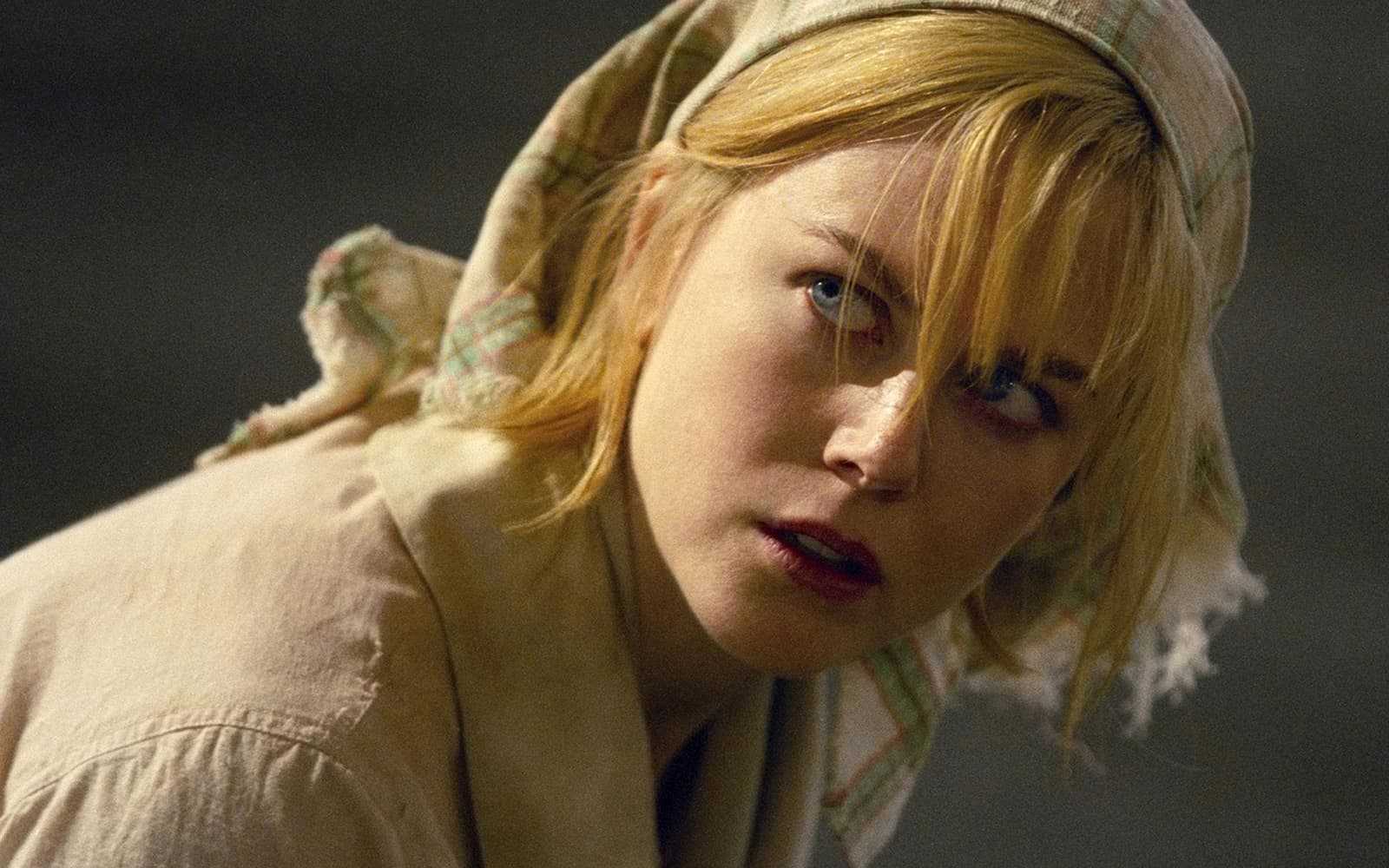Dogville by Lars Von Trier (Review)

At first glance, my first film of the festival and the only one of the three films I’d designated must-see that I actually got to see seems to violate my “Not if it’s going to be in mainstream theaters” rule. But a) I’m a Lars von Trier freak, and b) this was the initial three hour cut of the film, and early reports are that it will be trimmed down to the two hour range before hitting the domestic circuit. Plus, Nicole Kidman was there. She’s really tall.
Lars von Trier is very much a love or hate type of director. I have yet to meet anyone who has a middling opinion of the man and, honestly, everything that people on both sides of the argument have to say about him is true. He’s frustratingly difficult, self-important, and melodramatic. He’s also one of very few filmmakers who insists on resisting Hollywood filmmaking trends and on experimenting with the medium itself in an attempt to produce more “truthful” films. His international influence as a founder of the Dogme 95 movement cannot be overestimated. That said, Dogville’s not going to convince anybody to change sides in this argument. Those who already hate him will continue to do so, likewise those who swear by his work.
Like the rest of his Dogme compatriots, von Trier has only shot one true Dogme film, but he has continued experimenting with different techniques to achieve the immediacy that was Dogme’s primary aim. With Dogville, von Trier moves his production onto a large soundstage which has a map of the town of Dogville painted on the floor. There are some minor pieces of built set — a bell tower, the frame of an abandoned mine, etc — but the vast majority of the action occurs on an empty stage.
The primary consequence of this is that nothing can be shot in isolation — von Trier can’t work with just one actor in just one set — but rather the entire village is always populated and active. The approach works remarkably well, and if nothing else, it’s good to see von Trier working with sound, lighting, and more technically-involved shots than he has on his past several projects. The man is a phenomenally skilled technician and that is one aspect of his craft which he deliberately set aside during his Dogme experimentation.
So, what happens on this big empty stage? The film is an allegorical satire and plays out as an extreme criticism of both U.S. foreign and economic policy and the overly passive attitudes of the countries that involve themselves with the U.S.. The film centers on Grace (Nicole Kidman), a young woman on the run from forces never really described. She stumbles into Dogville, a small town in the Rocky Mountains where she is discovered by Tom Edison (Paul Bettany), an aspiring philosopher and writer who never seems to actually do or write anything.
Tom, looking to teach his fellow townspeople a moral lesson, convinces Grace that if she can meet the rest of the town and explain her situation, then they will be willing to take her in and shelter her. He calls a town meeting where he explains the situation and the town, reluctantly, agrees to take her in on a two week trial. If, at the end of those two weeks, any one member of the town feels that she is a greater risk to the town than she is a benefit, Grace will have to leave. Grace then sets to work for the various townspeople, performing various odd jobs in an effort to prove her worth. The townspeople are gracious enough at first, but after encounters with policemen searching for Grace they quickly raise the stakes.
It is very soon after this point that it is most useful to remember this story is meant to function as an allegory with the different characters representing different political forces rather than actual people. From this point on some of the character’s actions and motivations, in particular Grace and Tom’s, stop making any sort of sense if you treat them as rational individuals.
Realizing that they are in a significant position of power over Grace, the townsfolk quickly reduce her to a state marginally better than slave labor, drastically cutting her wages and upping her hours. Ultimately Grace ends up chained to an iron wheel to prevent her escape, forced to do virtually all of the town’s work, and raped by pretty much the entire male population with the exception of Tom. And strangely enough, it never seems to occur to Grace to really complain about this or doubt that Tom knows what he’s doing and wants the best for her. The end, when it comes, is graphic and bloody.
Von Trier has an excellent cast to work with here, with Stellan Skarsgaard and James Caan in particular chewing up every scene they appear in. The satire is vicious — von Trier has never been accused of being a subtle man — in its attacks of both the U.S. for exploiting the weaker countries of the world, and of Europe for so passively allowing this to happen. The film is also surprisingly funny at points, in a very absurdist sort of way. If nothing else, Dogville is sure to rile the American right wing.
Written by Chris Brown.
